I was among the many fans last year who lamented the end of Matt Groening’s BONGO Comics last October. Until the end, the publisher of The Simpsons (and it’s many meta-spinoffs), Futurama, and SpongeBob Squarepants published high-quality books that nurtured the talent of many writers, artists, letterers, and colorists. What made the news of Bongo’s closing so shocking was its suddenness; one doesn’t expect something to close with such finality and with little warning.
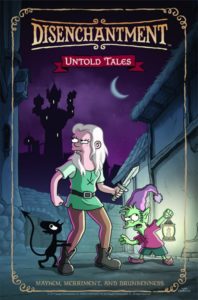
Indeed, Disenchantment: Untold Tales picks up (sort of) where the show left off (no spoilers here!). Following the dyspeptic and deeply misanthropic adventures of Princess Bean, Elfo the Elf, and Luci the Demon, the oversized hardcover is a handsome introduction to the world of the show as well as a nice expansion of the universe. Or, as Groening pithily notes: “[Y]our favorite fantasy freaks doing stuff we couldn’t fit in to the TV show.”
Disenchantment is set in a fantasy world and it plays with the tropes that with which we are familiar. There are peasants, trolls, a hobbit or two, magic, and kings with a propensity for (hilarious) cruelty. The book follows two major arcs: the first has Bean and her friends going on a “Pub crawl”; the second seeks to solve the diplomatic woes between the primary locale of Dreamland and the neighboring Dankmire. Needless to say, while these set-ups seem simple, they are ripe with dark humor — much of it supplied by Luci, who never misses an opportunity to stir up nihilistic trouble for kicks—and dismantling of fantasy norms.

At the time of this writing, however, there is no retail release date of the Untold Tales.
In his introduction, Groening writes that: “We are scheming to blow your minds with some heavy emotions, and you even shed a tear or two between the jaw-dropping cliffhangers.”
This comic edition doesn’t blow minds so much as it fixes a hole in the market for irreverent adventures of overbite-prone characters. It’s a welcome return.


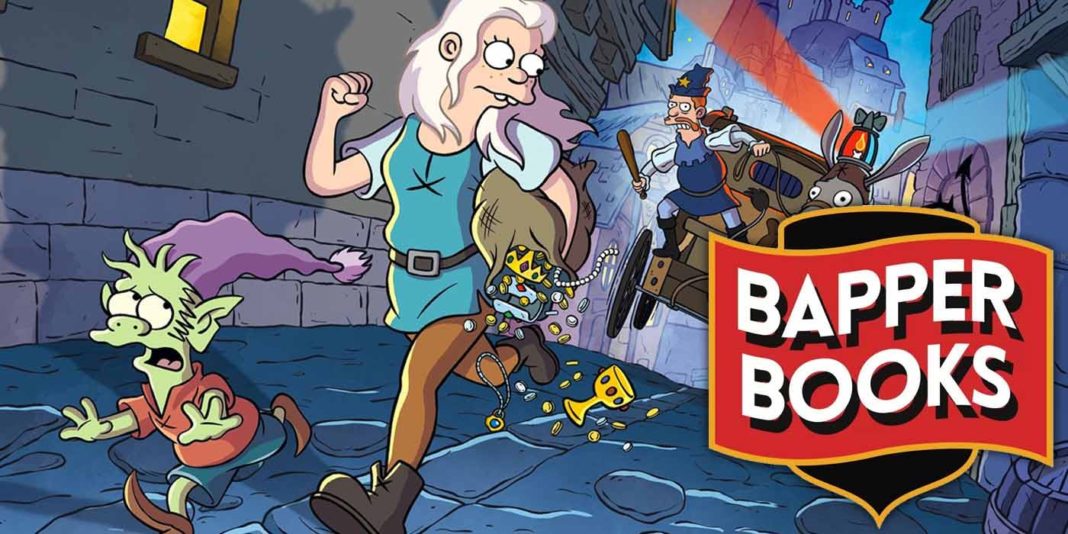
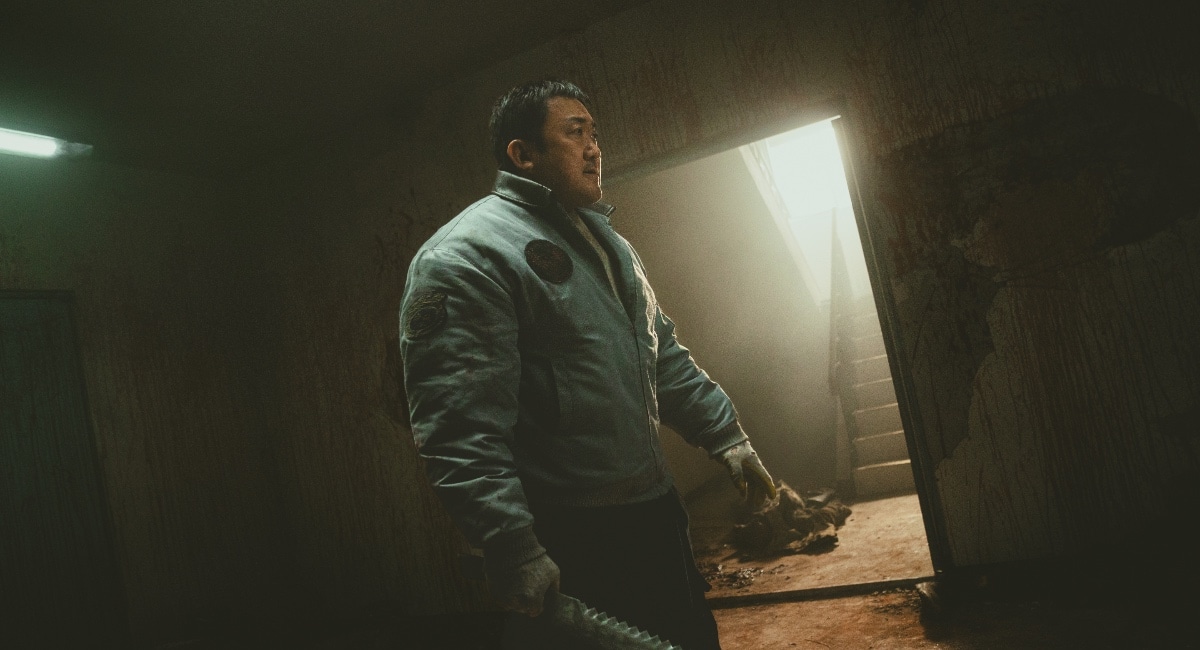
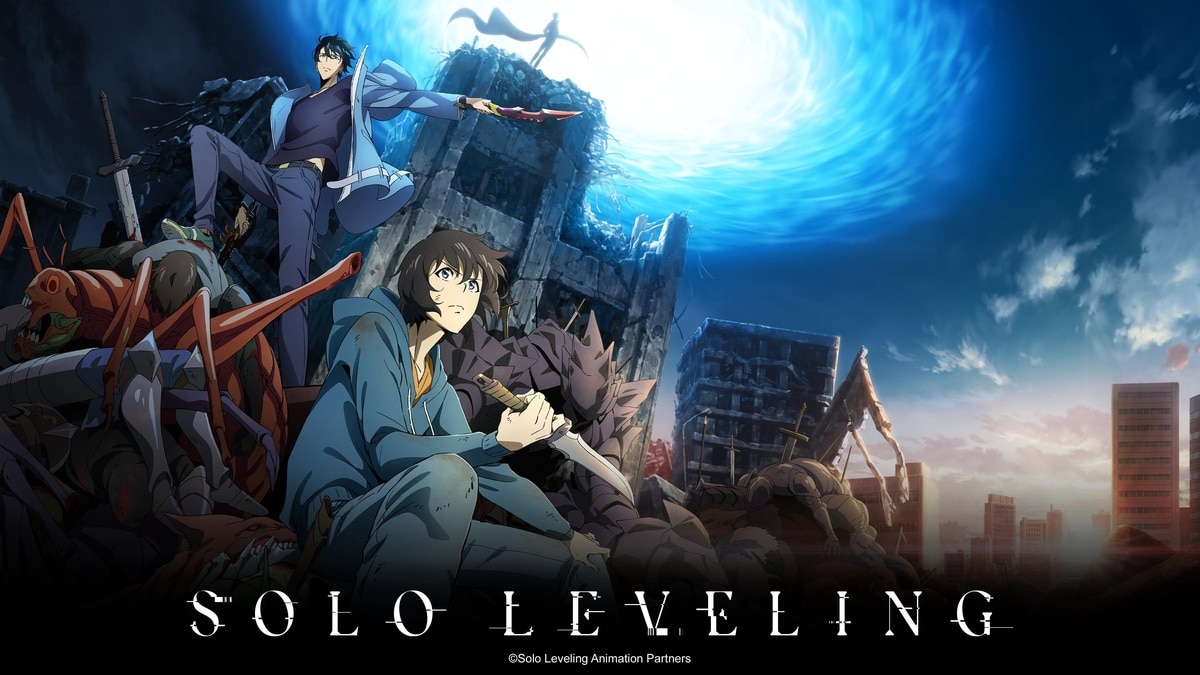

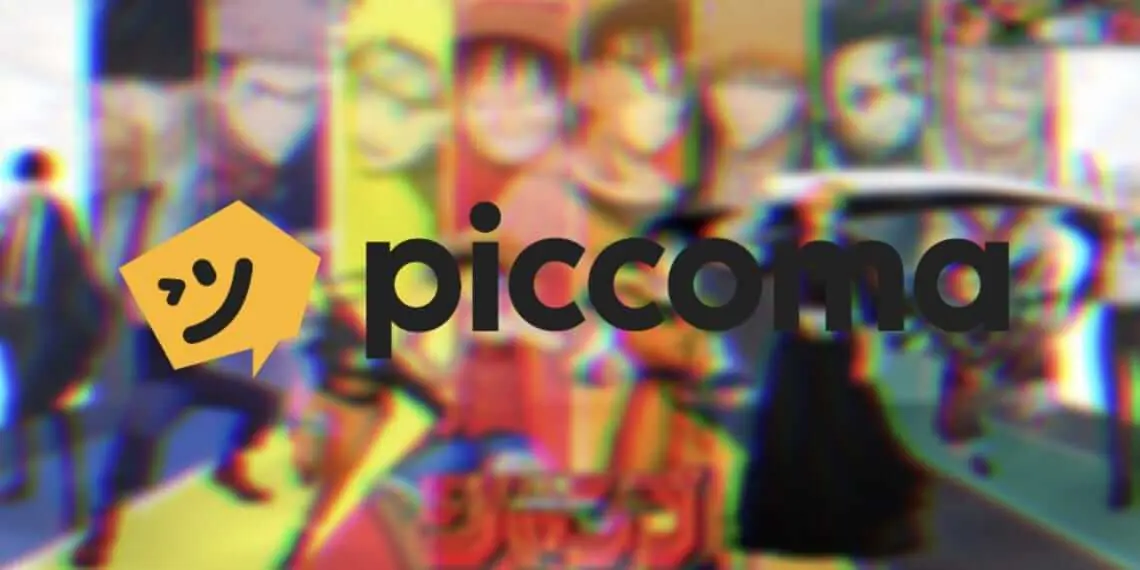

Thank you for this article, you seem to be the only covering Bapper Books at SDCC. Can I ask you Who the artists and writers of this volume are? Do we know when we’re going to know more about Bapper Books?
I enjoyed the first Disenchantment comic too! (By the way, Bongo didn’t publish SpongeBob Comics–note actual title of the series. United Plankton did.)
Comments are closed.